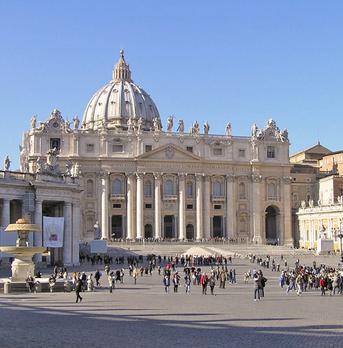Observable money-laundering cases decline in Holy See
Chris Hamblin, Editor, London, 22 May 2019

Vatican City's Financial Information Authority (AIF) has reported a drop in anti-money laundering cases from 544 in 2015 to 207 in 2016 to 150 in 2017 and now to 56 in 2018, according to the Papal press.
The AIF, like other financial intelligence units around the world such as Fintrac in Canada and Austrac in Australia, is a supervisory authority as well as an FIU.
The figures come from the authority's report for 2018 which it issued this week. The report also relates that the FIU suspended three transactions/operations in 2014 that amounted to €561,574.89; eight in 2015 that amounted to €8,262,565.42; four in 2016 that amounted to €2,113,838.55; none in 2017; and three in 2018 that amounted to €422,077.
As for the freezing of accounts, funds and other assets, there were none in 2014; four in 2015 that amounted to €7,051,422.42; one in 2016 that amounted to €1,550,199.45; one in 2017 that amounted to €1,757.40; one two in 2018 that amounted to €2,362,725.53.
Vatican City State has neither a financial market nor private financiers. Branches or subsidiaries of foreign financial institutions are not established there; insurance companies, electronic money institutions, trust companies and securities firms are not established there; public debt instruments, capital instruments, securities and associated instruments are not issued; and there are no regulated markets, multilateral trading facilities and organised trading facilities. The Vatican Bank, or Istituto per le Opere di Religione (IOR), is reputed to be the most secretive bank in the world. Only Vatican employees - some of very high net worth - and religious institutions are allowed to open accounts there.
In 2018, the AIF signed new Memoranda of Understanding (MoUs) with the Supervisory Authorities of Brazil (Banco Central do Brasil–BCB) and Panama (the Superintendencia de Bancos de Panamá or SBP). Since 2014 AIF has signed MoUs with the Supervisory Authorities of eight foreign jurisdictions, namely Brazil (the Banco Central do Brasil or BCB and the Conselho de Controle de Atividades Financeiras or COAF), Germany (the BaFin), Italy (Banca d’Italia), Luxembourg (the Commission de Surveillance du Secteur Financieror CSSF), Malta (Malta Financial Services Authority or MFSA), Panama (Superintendencia de Bancos de Panamá or SBP), Poland (Komisja Nadzoru Finansowego or KNF) and United States of America (the Office of the Controller of the Currency or OCC).












